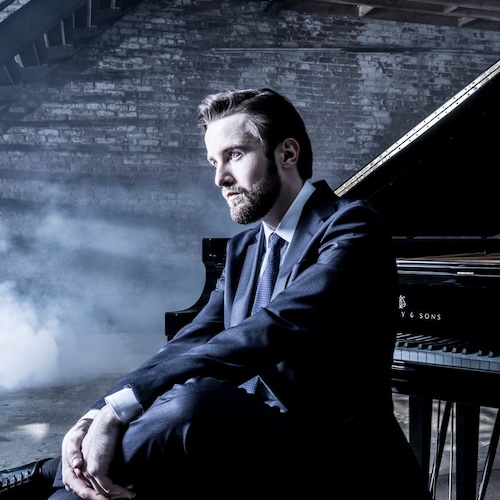Trifonov delivers stylish, individual Mozart with the Rotterdam Philharmonic

The Russian-born pianist Daniil Trifonov has joined the handful of classical music’s genuine superstars, inspiring a level of praise previously lavished on such virtuosos as Evgeny Kissin.
Like many young pianists, he plays and records lots of Tchaikovsky, Rachmaninoff and Liszt. But for his concert Monday at the Kravis Center in West Palm Beach with the Rotterdam Philharmonic, he chose a less virtuosic work, Mozart’s Piano Concerto No. 9, a youthful composition that’s sometimes considered Mozart’s first masterpiece.
The bearded, dark-haired pianist carries a dramatic stage presence, leaning over the keyboard in intricate passages or bouncing up and down in energetic ones.
His virtuosity, which allows him to play fistfuls of rapid notes in Rachmaninoff, gave him the control to play Mozart’s melodies in the opening Allegro with an almost vocal naturalness and ease, and infinite gradations of tone color. In the light fast passages with which the concerto abounds, he produced a highly distinctive tone—articulate but buttery smooth, without a trace of staccato harshness.
In the somber Andantino, he made so much of single lines of melody, using a trace of rubato to draw out the tension and longing in the music. The orchestra, under chief conductor Lahav Shani, provided a glowing accompaniment, particularly the winds. He brought a galloping energy to the quiet melody of the concluding Rondo, and achieved a clanging grandeur in the cadenza.
The orchestra, while less celebrated than the Royal Concertgebouw, its illustrious Amsterdam counterpart, is an excellent ensemble. Strings played with knife-edge precision and perfect intonation, winds with distinctiveness and warmth and the brass with the sort of refinement and understated power found in few orchestras.
The concert opened with Swansong by the contemporary Estonian composer Arvo Pärt, one of the world’s most popular living composers.
An Orthodox Christian, Pärt was inspired to write the work by the last lines of a poem by John Henry Newman, the 19th century English theologian who became a Catholic cardinal and was canonized as a saint in 2019. The prayer called for “a safe lodging, and a holy rest, and peace at the last.”
The work opened in a serene spirit, with choir-like winds over a pizzicato accompaniment in the strings. Simple tonal harmonies gave the music an ageless quality. It sounded, at first, like it would be a modest and not especially interesting few minutes of comfort and affirmation.
But the tone turned darker, with bruising dissonances in ascending string passages and a brassy climax, As the energy dissipated, violins and trumpets engaged in an exchange of tense two-note motifs. The work closed gravely in a tone of peace that now seemed hard-won and deserved.
After the spare orchestrations of Pärt and Mozart, the full complement of musicians took the stage for a suite from Prokofiev’s ballet Romeo & Juliet, with Shani’s own selection of excerpts.
The performance was big, warm and romantic, shot through with tension, violence and a strong sense of theater. The massive chords in the opening, with their rich dissonances, felt monumental in their depth. Anchored by rich sounds in the lower brass, the war-like melody that followed moved with aggressive force.
In the Death of Tybalt, strings raced through the opening frenzy of notes, occasionally making them something of a blur, but full of fire. The series of short fortissimo chords that followed were angular, violent and delivered with sharp precision.
The scene of Romeo at the Tomb of Juliet opened with unusual restraint, rather than with the abrupt and searing statement made in many performances. This gave the music space to grow, and each iteration of the theme arrived with that much more force, particularly when trombones and tuba added their weight to the music, giving it a tone that was deep and powerful but never raucous.
Lahav Shani, the Rotterdam Philharmonic and Daniil Trifonov will repeat the program Wednesday in Orlando, Thursday at the Arsht Center in Miami, Saturday at Carnegie Hall in New York and Monday at the Kennedy Center in Washington.
The Kravis Center’s classical series continues 7:30 p.m. Friday with the Vienna Philharmonic conducted by Franz Welser-Möst in Berg’s Three Pieces for Orchestra and Mahler’s Symphony No. 9. kravis.org
